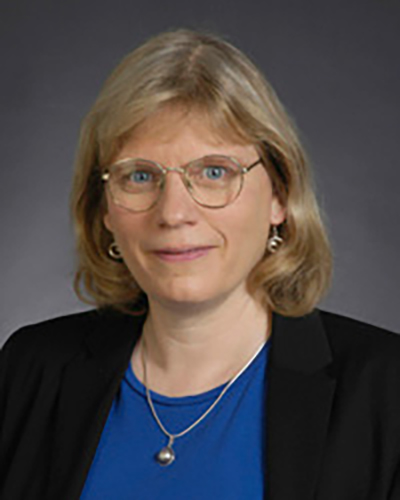Tice’s first experience in Michigan philanthropy was in 1991 as lead evaluator for Michigan Community Foundations’ Youth Project (MCFYP). The MCFYP evaluation was both formative and longitudinal. Tice worked closely alongside the project managers and community foundation leaders, and provided insights during the development of the project that also helped shape MCFYP. Her contributions to the early MCFYP program left lasting impressions on the field. After working with the Michigan program, Tice helped with the development and evaluation of youth grantmaking programs in Colorado, New Jersey, and Washington, D.C. These programs were imperative in educating and empowering youth in their ability to create positive change within their own communities. Tice’s longitudinal reports on these projects were used nationally and internationally to help develop youth grantmaking programs.
“I think MCFYP really started a paradigm shift in how young people were viewed in the state. When MCFYP started, young people were really viewed as problems to be solved. Now they are part of the solution. This was part of a larger shift in the country to a more assets-focused approach.”
After a 10-year longitudinal follow-up study with MCFYP participants, Tice found that 95% of the youth were giving back and 26% were serving on a nonprofit or community foundation board. Through the advocacy of those involved with MCFYP, the “young people actually helped to change the law here in Michigan so that younger people could serve on nonprofit boards,” said Tice. “What MCFYP did was to put resources into young people’s hands and give them an opportunity to be assets, and to develop and create positive change in their communities.”
“For the youth piece, the spin-offs have been amazing, just amazing … By 2003, there were 30 other states that had created youth philanthropy initiatives. There are at least a dozen countries — and probably more by now, because every time I talk to people from around the world I keep hearing, ‘Oh, we’ve started the youth philanthropy initiative in our — and we read your report.’ It’s really amazing. From South Africa, to Northern Ireland, to Australia. The entire country of Australia has engaged in youth grantmaking. In Canada, every community foundation has engaged young people in grantmaking.”
Tice worked with the Michigan Community Service Commission (MCSC) as evaluator of their first grant, helping to document the grantmaking process and program results as a model for successive MCSC initiatives. At the time, “it [the commission] was innovative and new in the country — a new idea.” The state of Michigan had one of the very first community service commissions, appointed by Gov. John Engler prior to the passage of the federal legislation forming the Corporation for National and Community Service. Since the 1990s, she has supported a broad range of innovative philanthropic efforts by Michigan foundations and their partners.
A background in applied anthropology gave Tice a unique perspective into the evaluation process and the interconnections among philanthropic initiatives and existing social conditions. That is, how philanthropic initiatives influence existing social conditions and vice versa.
Her approach to evaluation was to include all of the stakeholders in early conversations to determine project goals, discuss measurement, and identify purposes for the report. The MCFYP evaluation is rich in contextual detail along with identification of lessons learned. Her insight into the complexity of community and the many layers within is something that marks these evaluations as truly insightful.
Since 1986, Tice has served as president of Formative Evaluation Research Associates, located in Ann Arbor, Mich. She has special expertise in community-based and youth philanthropy, and innovative approaches to create racial equity through community and systems-level change.
Latin American Studies
Throughout her career, Tice has had a strong interest in Latin American culture. This interest was sparked by her engagement as a young adult in a foreign exchange program to Oaxaca, Mexico. Tice stated that she felt her life was coming “full circle” when she revisited Oaxaca as a program evaluator for their youth philanthropy efforts.
“I had an opportunity to go back and do a case study of the Oaxaca Community Foundation through the International Youth Foundation evaluation that FERA was doing at that time. To be able to go back … and give something back professionally to a community that had given me so much as a young person meant a lot.”
Tice completed field studies in Guatemala, Panama, Mexico, and Spain and speaks four languages: Spanish, Catalan, Kackchiquel, and Kuna. In 1995, Tice published Kuna Crafts, Gender and the Global Economy, which was awarded the Outstanding Academic Book award by the American Library Association.


















